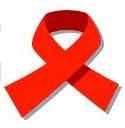BEIJING Wan Yanhai is used to harassment by authorities, but the unwanted attention got steadily worse this year for the founder of a prominent Chinese AIDS advocacy group. Authorities ordered the group’s anniversary celebration canceled, sent commercial regulators and tax inspectors to visit its offices, and had police interrupt his talk at a university.Finally, after dozens of intimidating phone calls from police in a single day, Wan fled to America via Hong Kong last Thursday with his wife and child.
His departure illustrates the toll that relentless official harassment takes on activists in China, even those working on issues such as AIDS that are recognized by the government as legitimate concerns.”The attacks from the government had become very serious for my organization and for me personally,” Wan said Monday by phone from Philadelphia, where he and his family are staying with a friend. “I had concerns about my personal safety and was under a lot of stress.”
“When I am in China, the authorities look at me like I am a bird in a cage. They say, ‘If you don’t listen to me, then I will eat you,'” Wan said. “But after I leave the country, they will see me in a new light because I am no longer in their cage.”
In recent months, Beijing has been tightening its control over the operations of independent groups and activists that are seen by the Communist leadership as threats to the government’s authority. A renowned women’s rights organization was shuttered last month, while over the weekend, two lawyers who represented a member of an outlawed spiritual movement were banned from practicing law for life.
In March, the government decided to regulate overseas donations to aid groups, a move that has squeezed the funding of organizations like Wan’s Beijing-based Aizhixing Institute, which offers legal advice to people with HIV and campaigns against discrimination.
The rule says groups such as Aizhixing must show proof that overseas nonprofit donor groups are registered in their home countries and strictly follow detailed agreements with foreign donors on how donated funds are spent.”Funding became a major problem for us after that,” Wan said.He said police interrupted a March talk he was due to give to the Southern China Science and Industry University on sexual orientation and mental health. He said he later heard that a notice had been sent to universities nationwide telling them not to invite him to speak.Finally, on April 23, he received dozens of phone calls from police about an event to train lawyers on how to use new social media, Wan said.
Two days after the phone calls, he and his wife left Beijing for Guangzhou in the south.”To be honest, I was becoming very worried. I felt like if we had acted slower, it would not have been good,” he said. The family decided to leave during a business trip to neighboring Hong Kong.
“Before we left, we didn’t tell a lot of people,” he said. “We waited until Thursday evening after we got to Hong Kong, bought the flight tickets and passed through the security checks at the airport before we called a few friends.”At Aizhixing’s office in Beijing on Monday, a staffer who handles media inquiries said employees only learned about Wan’s departure from media reports.”I’m a little bit surprised and also a bit nervous,” said the woman, who refused to give her name due to the sensitivity of the issue. “We’re still working on several projects here and we haven’t got time to discuss it.”
In recent years, China’s government has made huge strides in openly addressing the spread of HIV, but it is deeply suspicious of independent activists, and Wan has one of the highest profiles among those working on AIDS in China.Wan, a former Health Ministry official, founded the Aizhixing Institute in 1994 to raise awareness and fight discrimination. Among its most significant and politically sensitive work was the publicizing of the spread of AIDS in the 1990s among villagers in central China’s Henan province, where people who sold blood were re-injected with pooled blood after buyers had removed important components.
Wan has been detained for up to weeks at a time by authorities, but never formally convicted under China’s loosely defined sedition laws.Aizhixing’s advocacy alone was enough to make authorities view Wan with suspicion, said Kin-man Chan, director of the Center for Civil Society Studies at the Chinese University of Hong Kong.
Chan said Wan had given a talk at the research center last Wednesday about the challenges non-governmental organizations faced in China, but had not mentioned plans to leave the country.”I feel very sad that people like Wan Yanhai have to leave. I feel very, very disappointed,” Chan said.”If you don’t allow these NGOs to represent those disadvantaged groups and voice out their grievances, then people might at the end of the day take some isolated, more radical actions to express their disappointment,” Chan said.
Wan said he and his wife have yearlong business visas for the U.S. and have no long-term plan yet. In the coming days, he hopes to meet with international organizations to discuss ways to cooperate on projects and for funding.
Wan’s move was met with support by Chinese activists, many of whom posted messages on Twitter, although some also expressed regret at his departure and worries about the future of his organization.”I empathize with Wan’s feelings. Although I feel a little regret toward his decision, still, I fully understand and wish them a happy life,” said Zeng Jingyan, whose husband Hu Jia is serving a 3 1/2-year jail term for sedition.(AP)



